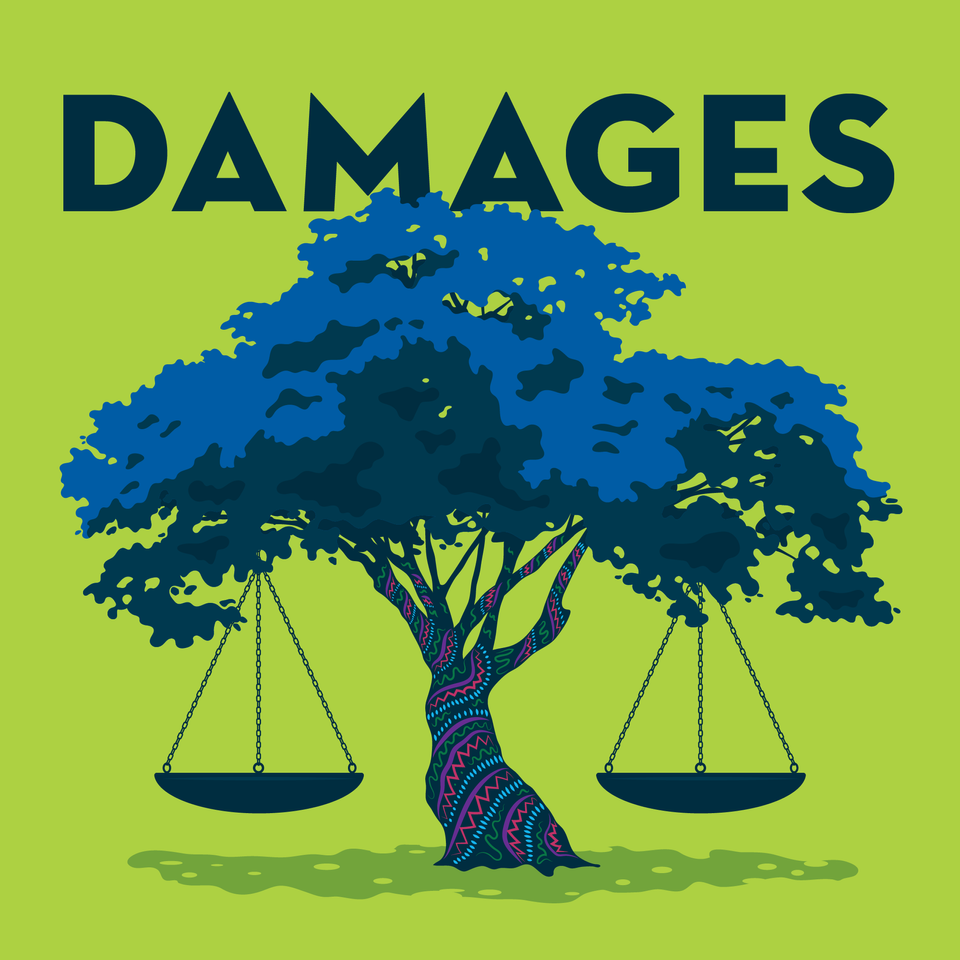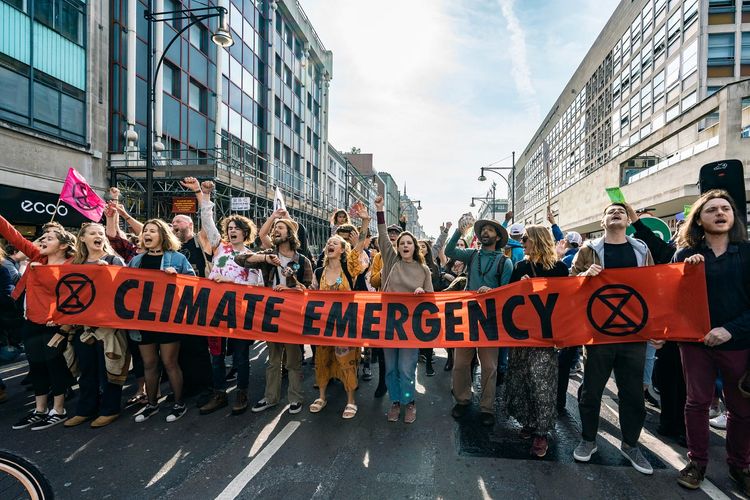Podcast: Introducing Damages

Damages is a courtroom drama podcast that follows the well over 200 climate lawsuits currently active in courtrooms all over the world. Ranging from explanatory episodes to docuseries to narrative seasons, it’s a show about the quest for justice and a crime against humanity: the climate crisis.
S1: The Forest for the Trees
In our launch season we delve into rights-of-nature laws in countries all over the world, including attempts by some local and tribal governments in the U.S. to apply the concept in American courtrooms. Rights of nature incorporates Indigenous approaches to nature into Western judicial systems by giving ecosystems the same rights that individuals have…which might sound really out there, but is it really so different from giving corporations human rights? Through the stories of cases brought on behalf of wild rice (Minnesota), a cloud forest (Ecuador), a mountainous region (New Zealand), and a lake (Ohio), we’ll look at the philosophical and legal roots of this idea, how it’s played out in the past, and how it could catalyze climate action.
Ep 1: Manoomin v. Minnesota - For the Ojibwe, wild rice – manoomin in Ojibwe – is sacred. It’s also an indicator species; if the rice isn’t growing on the northern lakes, the water has been contaminated. When Minnesota’s Ojibwe bands saw what was happening with Standing Rock in 2016, they knew it wouldn’t be long before they had a similar fight on their hands. So in 2018 they formalized something that had been included in every treaty between the tribe and the U.S. government: the rights of manoomin. They added the plant’s right to survive and thrive to the 1855 treaty, the document that governs the relationship between Ojibwe bands and the U.S. And in 2021, in an effort to stop Enbridge Energy’s Line 3 pipeline, the White Earth band of Ojibwe sued the Minnesota Department of Natural Resources for violating the rights of manoomin. The pipeline was still built but manoomin’s case is ongoing, and it could have major implications, not just for the Line 5 debate in Michigan, but also for tribal sovereignty and the ability of tribal courts to enforce tribal law.
Ep 2: Who Should Speak for the Trees? In this episode we zoom out a bit and look at the history of rights of nature, its philosophical and legal roots, the form it’s taken in the U.S. and elsewhere, and why it has so much potential to shake up the legal system.
Ep 3: The Cloud Forest v. The Mine (coming soon) Ecuador was the first country to adopt rights of nature into its constitution, but its Constitutional Court (Ecuador’s equivalent to the U.S. Supreme Court) has not heard many cases in the decade or so since the law was added. The new Constitutional justices made a point of picking several cases to test rights of nature, and in 2021 handed down a major judgement…in favor of Los Cedros, one of the most biodiverse cloud forests in the world, and against the Canadian company hoping to mine copper and gold there.
Ep 4: Children of the Mist (coming soon) Te Urewera is the largest rainforest on New Zealand’s North Island, spanning 2,127 sq km of hills, vast blue-green lakes, waterfalls and fast-running rivers. In 2014, a world-first law brought an end to government ownership of Te Urewera National Park and recognized the rainforest as its own legal entity and the Tūhoe people as its legal guardians. The international rights-of-nature community heralded it as an enormous win, and still point to it as the gold standard. But the Tūhoe see the shift as merely a step in the direction of their land being returned to them.
Ep 5: The Backlash (coming soon) In 2019, after a decade-long campaign, voters in Toledo Ohio voted to approve the Lake Erie Bill of Rights, effectively giving the lake personhood. It drew an incredible amount of attention. This wasn’t San Francisco hippies or Brooklyn hipsters talking about rights of nature, this was middle-aged moms in the Rust Belt, and that absolutely terrified any extractive industry. Agrichemical companies turned out in force against the bill, BP spent a fortune to try to stop it, and almost as soon as it passed it was being questioned in court. Then in 2020 the state smuggled a ban against rights-of-nature legislation into its annual budget bill. Similar preemptive bans on rights of nature have since been passed in Florida and Missouri. As one Ohio campaigner put it, “You know what you’re doing is working if they’re going around the country trying to preempt it.” In this ep we look at where the rights of nature movement is today, how the fossil fuel industry has responded, and what’s next.





